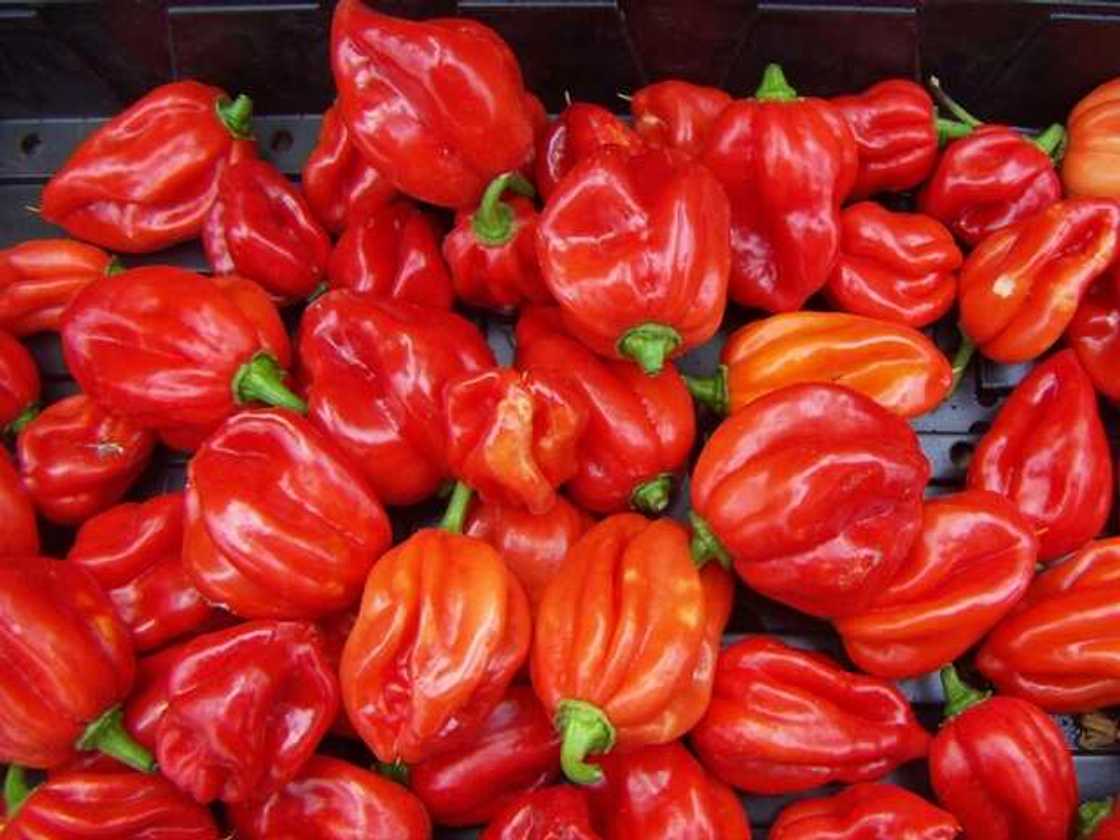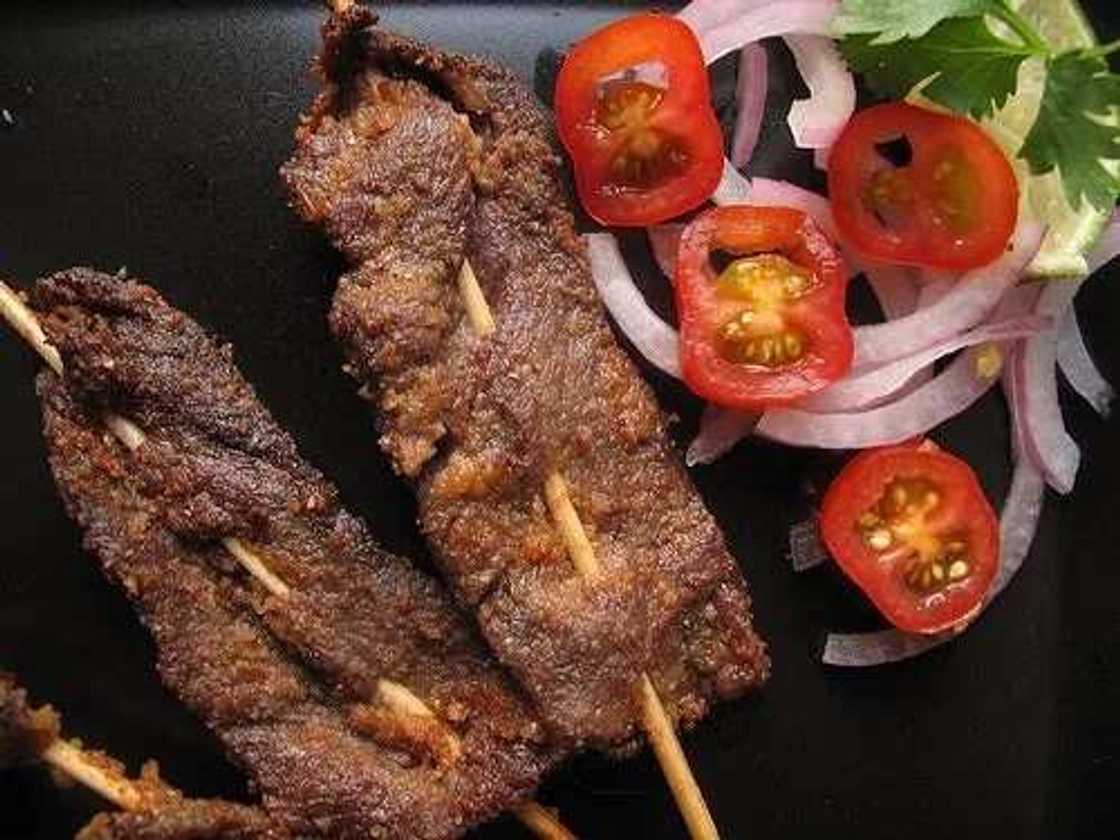FOOD MUSINGS: Top 7 Spicy Nigerian Foods
Editor's note: Legit.ng contributor Ifeyinwa Nzeka writes on Nigerians' love for pepper - all peppers, in all foods. She gives a list of Nigerian foods that are tastier for the pepper.

We Naija people, we like pepper shaaaa (note to self particulary)! Must everything be “peppery” or “hot”? It seems to me, and I am sure you will agree, that a number of our favorite things to eat in Nigeria, whether we are at home or abroad, happen to be dishes that have us reaching for water or a drink (make that chilled please) right after every other mouthful. These tasty dishes seem to be made more flavorful and satisfying by the addition of pepper which is a primary ingredient in most of the dishes mentioned.
The most popular peppers in Nigeria are tatashe (bell peppers), ata rodo (red, yellow or green scotch bonnets) and shombo (chili pepper). Here is a rundown of some of some of Nigeria’s favorite “peppery” dishes.
1. Suya

Suya which has its origins from our Hausa brothers and sisters is generally thinly sliced skewered meats including but not limited to beef, chicken, ram/goat, kidney and tripe that has been coated with a dry rub called Yaji and then barbecued. Yaji is primarily made of kuli kuli (traditional peanut cookies), chili pepper, salt and additional spices based on personal preference such as garlic, ginger, cloves, ehuru (calabash nutmeg) or Uziza (Ashanti pepper or West African Pepper). Suya happens to be an all-time favorite “peppery” street food!
READ ALSO: 9 Nigerian Snacks That Are Great For Your Health
2. Kilishi

Once upon a time, we had to either be in the North, traveled to the North or know someone coming from the North to have the pleasure of eating these. Now, we can find it in packages on supermarket shelves and even on the streets neatly packed in brown envelopes or plastic packs. Kilishi is meat dried and covered in groundnut paste and pepper.
3. Pepper soup
Whether it be chicken, goat, beef, assorted meat, cow tail or leg, fish or other seafood or even vegetables, when it comes to our food preferences as it concerns us Nigerians, pepper soup is a sure bet! Depending on the cook, the heat of the pepper varies in intensity and a number of us must have, at some point, had a bowl that made us cry and yet we emptied it.
[article_adwert]
READ ALSO: READ How 80s Song Inspired Drinking Pepper Soup
4. Asun
Of course we all know that apart from the smokiness of the goat meat, what makes asun, asun, is the ata rodo as in the scotch bonnet pepper! When smoked goat meat meets ata rodo with some onions, the result is one dish with a seemingly explosive hotness that makes you teary yet keeps you wanting more.
5. Ayamase (Ofada stew)
Also known as ofada stew or ofada sauce is so called because it is the number one sauce for our local rice called ofada rice. Made with peppers which include tatashe (bell peppers) and rodo (scotch bonnets) which are better green as it concerns this recipe as well as iru (locust beans) and a number of other ingredients, the peppers and iru are what makes this dish.
READ ALSO: Why Coconut Rice Is Way Better Than Jollof Rice
6. Ata din din

Ata din din, which means fried pepper in Yorub, a is a delicious sauce made with peppers: Tatashe, ata rodo or shombo; some onion, salt and seasonings. The mixture is fried dry to give a very versatile sauce that can be used as a dipping sauce, a sauce for meats and as a base for a number of stews and sauces.
7. Agoyin pepper
Eating plain boiled or mashed beans may seem incomplete without this sauce that is also called agoyin sauce. Made with dried shombo (chili pepper) and with tatashe (red bell) or rodo (scotch bonnets) this street food made with an insane amount of peppers that could possibly set your mouth aflame is no doubt a dish loved by Nigerians. Seriously moreish!
READ ALSO: On The Palm Oil Matter, To Eat Or Not To Eat
Did we miss any of your favorite “peppery” foods? Let us know in the comments section!

Ifeyinwa Nzeka is a Cordon Bleu trained chef, hospitality practitioner and blogger who is passionate about Nigerian food and cuisine.
Source: Legit.ng

